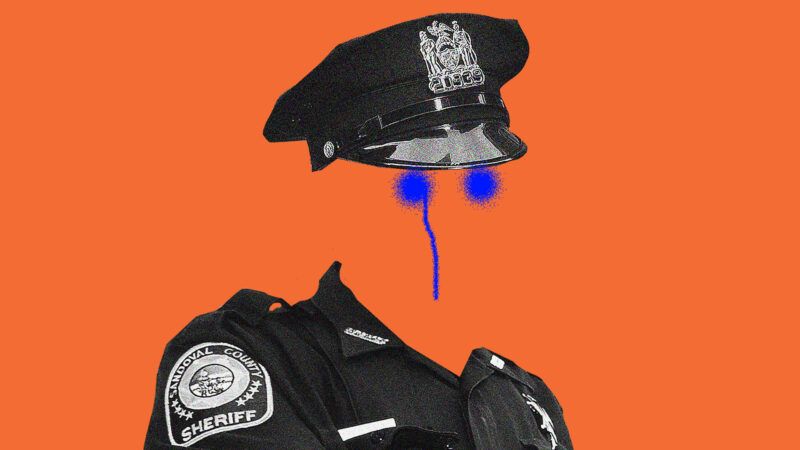New Mexico Abolishes Qualified Immunity
It is the third state to rein in the legal doctrine that protects state actors from accountability for misconduct.

New Mexico has officially ended qualified immunity, making it the third state to curb the legal doctrine that often shields state actors from accountability for alleged misconduct.
Governor Michelle Lujan Grisham on Wednesday signed House Bill 4, which will prohibit all government officials from using a qualified immunity defense in state civil court.
The doctrine remains in place at the federal level, though it has been the topic of much debate since the May 2020 police killing of George Floyd. New Mexico's law will allow victims of government malfeasance to pursue recourse through state litigation.
Qualified immunity protects public servants from civil rights lawsuits unless their misbehavior was "clearly established" somewhere in case law prior to the alleged offense. Though it was supposed to serve as a bulwark against frivolous lawsuits, the principle has become so broad that it enables rogue government workers to skirt civil accountability for overtly unethical behavior.
There were the cops who got qualified immunity for allegedly stealing $225,000 while carrying out a search warrant. There was the cop who shot a 10-year-old while aiming at the boy's nonthreatening dog. There was the cop who shot a 15-year-old who was on his way to school. There were the cops who arrested and assaulted a man for the crime of standing outside of his own house. According to the doctrine of qualified immunity, we could not expect those officials to know their behavior was wrong unless a court decision with almost identical factual circumstances existed somewhere on the books. It's quite the low standard.
"When you've got someone who has a valid claim against a police officer, but there's no existing precedent where that exact same thing has already happened," says Clark Neily, vice president for criminal justice reform at the Cato Institute, "then the New Mexico law will give them an alternative avenue to pursue that claim in a court system that is not going to throw the case out simply because there doesn't happen to be a pre-existing case exactly on point….[It] will certainly enable victims of civil rights violations to hold police accountable in circumstances where they would not otherwise have been able to before the law was passed."
While some victims are able to furnish the perfect court precedent and are thus allowed to pursue their claims, not all plaintiffs are so lucky.
As expected, the law enforcement lobby resisted the change—a good barometer for how effective this new policy might be. Over the last year, the public has become increasingly aware of public sector unions, the job of which is to defend their ranks no matter how unsavory the behavior might be and no matter what the cost to the public. As Reason's Jacob Sullum wrote in February:
Defenders of qualified immunity warn that restricting or abolishing it would have a chilling effect on policing, forcing officers to constantly worry about being sued for doing their jobs. The New Mexico Civil Rights Act, like the laws that Colorado and Connecticut passed last year, addresses that concern by requiring government agencies (i.e., insurers and taxpayers), rather than individual defendants, to pay legal costs and damages. Notwithstanding that concession, every single Republican in the state House, joined by five Democrats, voted against the bill.
Along with those three states, New York City in March became the first metropolitan area to curtail qualified immunity for police officers. It did not address other public officials. The U.S. House has twice passed the same provision as a part of the Justice in Policing Act, though that legislation went nowhere last summer, and the qualified immunity portion in its current form is not expected to survive the Senate this year.
Former Rep. Justin Amash (L–Mich.) unveiled the first bill to end qualified immunity for all public officials in June 2020. It never received a vote. Rep. Ayanna Pressley (D–Mass.), his original co-sponsor, reintroduced the legislation last month. It is not expected to pass the filibuster despite the fact that a majority of Americans favor reform.



Show Comments (47)